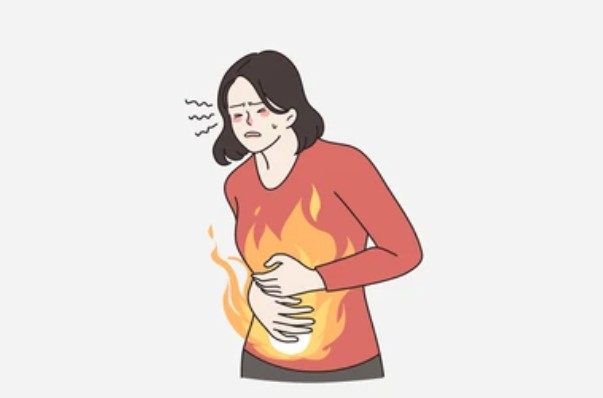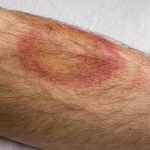Crohn’s disease is a long-term condition causing inflammation in the digestive system. It can lead to ongoing discomfort, but understanding its causes, symptoms, and management can help people take control and live well with it.
What Is Crohn’s Disease?
Crohn’s disease is a long-term condition that causes inflammation in the digestive tract, often affecting the small intestine and colon. Crohn’s disease is a chronic inflammatory bowel disease that causes swelling in the digestive tract, leading to pain, diarrhea, fatigue, and weight loss. This inflammation can lead to ongoing digestive issues, discomfort, and nutrient absorption problems.
What makes Crohn’s tricky is its cycle of flare-ups and remission, meaning symptoms can come and go unexpectedly. With the right treatment and support, many people can manage it and live well.
What Causes Crohn’s Disease?
Crohn’s disease usually develops from a mix of body and lifestyle factors rather than one single cause.
- Immune System Mix-Up: The body may mistakenly attack healthy gut bacteria, causing inflammation.
- Family Link: Having relatives with Crohn’s increases your risk.
- Lifestyle Triggers: Smoking, certain foods, and stress can make symptoms worse.
- Gut Changes: Imbalances in gut bacteria or past infections may also play a role.
Since it’s often a combination of these, managing Crohn’s usually needs a mix of treatments and lifestyle
Symptoms of Crohn’s Disease
Crohn’s disease can feel very different from person to person. Some may have mild symptoms that come and go, while others experience intense flare-ups that disrupt daily life. Understanding these symptoms can help you spot the signs early.
Digestive Discomfort
One of the most common signs is persistent diarrhea, which may sometimes have blood. People often feel cramping and stomach pain, especially on the lower right side.

Body-Wide Effects
Crohn’s doesn’t just stay in the gut. It can make you feel extremely tired, cause unintended weight loss, and lead to a loss of appetite. Some also get mouth sores, joint pain, or even skin and eye problems.
Flare-Ups and Diagnosis Challenges
During flare-ups, a fever is not unusual. Since many of these symptoms can look like other health issues, Crohn’s disease can sometimes take time to diagnose properly. Recognising the patterns and getting medical advice early can make a big difference.
How is Crohn’s Disease diagnosed?
If you’ve been dealing with symptoms like frequent diarrhea, stomach cramps, or unexpected weight loss, your doctor may start looking into whether Crohn’s disease is the cause. The process usually involves a few different tests to get a clear picture.
- Blood Tests: These help check for signs of inflammation, infection, or low iron levels, which can hint at Crohn’s.
- Stool Tests: Used to rule out other gut problems, like infections, that can cause similar symptoms.
- Endoscopy or Colonoscopy: A small camera looks inside your digestive tract to spot any redness, swelling, or ulcers.
- Imaging Tests: Scans like an MRI or CT can help your doctor see how much of your gut is affected and check for complications.
Getting a clear diagnosis is key because it helps you and your doctor figure out the right treatment to manage your symptoms and avoid flare-ups.
Ways to Treat Crohn’s Symptoms
There’s no cure for Crohn’s yet, but the condition can be managed with the right care. Treatments are usually tailored to each person.
- Medications: Anti-inflammatory drugs, steroids, immune suppressants, and targeted biologics help control symptoms and calm the immune system.
- Diet and Nutrition: Adjusting food choices can ease discomfort and support proper nutrition, especially when digestion is affected.
- Surgery: In some cases, surgery is needed to remove damaged parts of the intestine or fix complications like blockages.

The goal is to reduce flare-ups, improve daily comfort, and protect gut health long term.
Life with Crohn’s
Living with Crohn’s is about finding ways to manage symptoms while still enjoying daily life. Simple changes like eating smaller, gentle meals, avoiding personal trigger foods, and staying active can make a big difference.
It’s also important to keep up with regular doctor visits and to reach out for support when needed. Crohn’s can have its tough days, but with the right care, many people lead full, active lives.
Is Crohn’s Disease Life-Threatening?
Crohn’s disease isn’t usually life-threatening, especially when managed well. With today’s treatments and regular check-ups, most people can keep the disease under control and live full, active lives.
Crohn’s disease is not typically life-threatening, but if left untreated, it can cause severe complications that may pose serious health risks over time. Serious problems like severe infections, blocked intestines, or malnutrition can develop without proper care, and these can be dangerous.
That’s why early diagnosis, ongoing care, and staying on top of treatment make a big difference in staying healthy with Crohn’s.
When to See a Doctor?
If you’re dealing with ongoing stomach pain, long-lasting diarrhea, blood in your stool, sudden weight loss, or extreme tiredness, it’s a good idea to see a doctor sooner rather than later. These signs shouldn’t be ignored.

Getting checked early can make a big difference—starting treatment quickly can help you feel better faster and avoid more serious problems down the line.
How Diet and Lifestyle Can Make a Difference?
Although diet doesn’t cause Crohn’s, what you eat and how you live can really help ease symptoms and reduce flare-ups. Many people with Crohn’s find that small, thoughtful adjustments to their daily routine make a noticeable difference.
- Smaller, regular meals are often easier to digest and less stressful on the gut.
- Avoiding spicy, fatty, or high-fiber foods during flare-ups can prevent irritation.
- Staying well-hydrated helps the body function better, especially when dealing with diarrhea.
- Reducing stress through gentle exercise, mindfulness, or talking to someone can calm the digestive system.
- Quitting smoking is highly recommended as it tends to make Crohn’s symptoms worse.
- Working with a specialist dietitian can help you find safe, nourishing foods that support your health.
With Crohn’s, it’s not about a perfect diet—it’s about finding what works for your body and adjusting your lifestyle to feel your best.
Complications of Crohn’s Disease
Crohn’s disease can sometimes lead to serious complications if not well managed. Early treatment and regular check-ups can go a long way in reducing these risks.
Intestinal Blockages
Over time, chronic inflammation can cause parts of the intestine to narrow, leading to blockages. This can cause severe cramping, pain, and difficulty passing food or waste.
Fistulas
Crohn’s can also cause fistulas—unusual tunnels that form between the intestine and other body parts like the skin, bladder, or nearby organs. These can be painful and sometimes lead to infections.
Malnutrition
Because Crohn’s can affect how the body absorbs nutrients, many people struggle with malnutrition, weight loss, or vitamin deficiencies, especially during flare-ups.
Increased Risk of Colon Cancer
Long-term inflammation can slightly raise the risk of developing colon cancer. That’s why regular colonoscopies and close monitoring are important.
Bone Health Concerns
Prolonged use of steroids or ongoing inflammation can lead to bone thinning, or osteoporosis, increasing the risk of fractures over time.
Common Questions
What is Inflammatory Bowel Disease (IBD)?
Inflammatory Bowel Disease (IBD) is a group of conditions, including Crohn’s disease, that cause long-term inflammation in the digestive tract.
Can Crohn’s disease be cured?
There is no cure for Crohn’s disease, but with the right treatment, many people can manage symptoms and live comfortably for long periods.
How does Crohn’s Disease cause chronic intestinal inflammation?
Crohn’s disease leads to chronic intestinal inflammation by causing the immune system to mistakenly attack healthy tissue in the gastrointestinal tract






